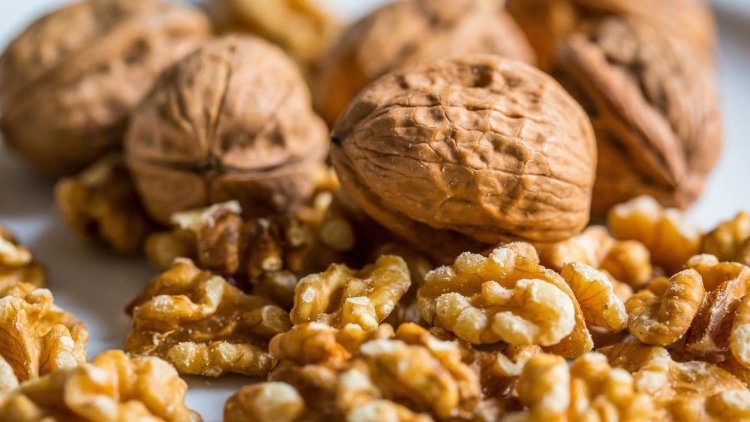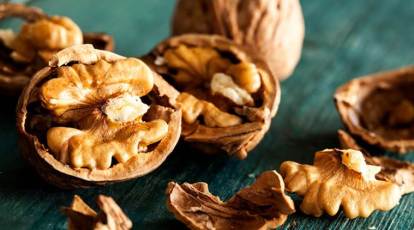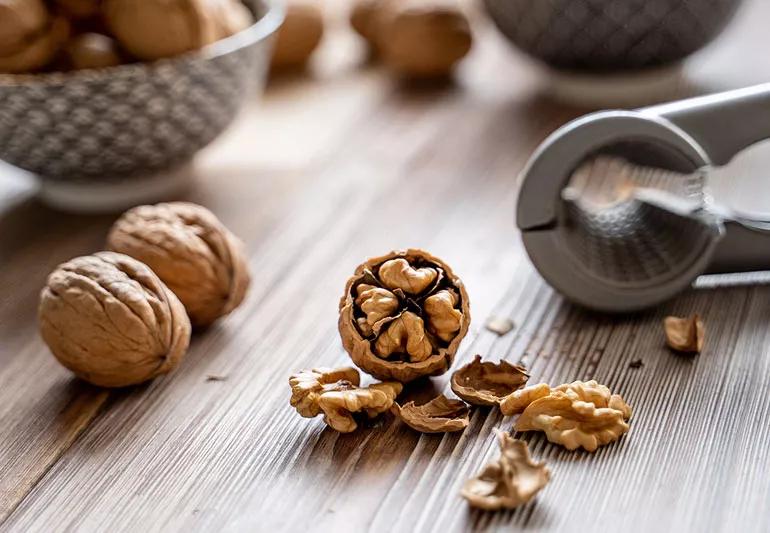The Crunchy Powerhouse for Heart Health: Why Walnuts Should Be a Part of Your Everyday Diet
Walnuts steal the show when it comes to little, powerful foods that can have a major impact on your health. These brain-shaped nuts, which are frequently added to salads or sprinkled over oatmeal, provide more than simply texture; they may even significantly lower your risk of heart disease.

Nutrient-dense, inherently delicious, and now supported by even more science, walnuts are the real deal in a world full of highly processed treats and fads for superfoods. Even if your cholesterol levels are already within a safe range, incorporating walnuts into your daily routine can help lower bad cholesterol and improve heart health, according to a recent study published in the prestigious cardiovascular journal Circulation.
The Study That Examined Walnuts in Depth
It was no little trial, the Walnuts and Healthy Aging Study. The study, which was supported by a California Walnut Commission grant, featured 708 senior citizens in Barcelona, Spain, and Loma Linda, California, ranging in age from 63 to 79. One group was randomly assigned to consume a quarter to half a cup of walnuts daily, whereas the other group abstained from walnuts for two full years.
The walnut group emerged victorious after all the measuring and crunching. Their LDL (the "bad") cholesterol levels were marginally, but significantly, lower. Furthermore, the results are even more convincing because roughly one-third of these individuals were already taking statins and did not have dangerously high cholesterol in the first place.
"This trial confirms what previous research has suggested—walnuts lower cholesterol levels," says Dr. Deirdre Tobias, a nutritional epidemiologist at Harvard's Brigham and Women's Hospital. The study is considerably more credible because it is long-term.
A Closer Look at the Heart's Advantages
However, this study went beyond a cursory examination. By examining the size and density of LDL particles, researchers really went down to the smallest detail. Why is that important? Because the type of arterial plaque accumulation that causes heart attacks and strokes is more likely to be caused by smaller, denser LDL particles.
What they discovered:
Small, thick LDL particles were less common in walnut eaters.
Intermediate-density lipoproteins (IDL), another indicator linked to cardiovascular risk, were also less prevalent in them.
The worst part is that walnuts did not make you gain weight, despite having a comparatively high calorie content.
It is worth restating that last point. Although a half-cup of walnuts contains about 380 calories, participants did not gain weight, most likely due to the fact that walnuts are high in fiber, protein, and healthy fats that keep you feeling full and content.
What, then, is so unique about walnuts?
Walnuts are the most heart-healthy nut in the family. They are particularly high in alpha-linolenic acid (ALA), a plant-based omega-3 lipid that the body can partially transform into EPA and DHA, two heart-protective substances present in fatty fish like salmon.
In other words, walnuts could be the next best thing for those who do not eat fish.
They excel in terms of antioxidants as well. Walnuts are frequently consumed raw, in contrast to many other nuts, which preserve their polyphenols, which are plant components that help combat inflammation and oxidative stress, two factors that are important in heart disease.
How to Include Walnuts in Your Day (Easily)
Food producers are permitted by the FDA to place this statement on products that include walnuts:
"Eating one ounce of nuts every day can lower your risk of heart disease."
That is roughly a quarter cup, or a good handful, of walnuts.
Here are a few tasty, hassle-free ways to include them:
Add it to your yogurt or cereal in the morning for a crunchy twist.
Add to pancake or muffin batter to increase nutritional value without compromising taste.
Blend into pesto to give a traditional sauce a walnut touch.
Sprinkle over roasted vegetables, such as green beans, carrots, or Brussels sprouts.
Eat them simply as a snack; they are filling enough on their own.
The Bottom Line: Walnuts are classic, not trendy. Furthermore, we now have further proof that they are an easy and efficient strategy to promote heart health, particularly for older persons or people who are worried about their cholesterol levels.
They might not be ostentatious. They are not exotic. However, walnuts are among the most nutrient-dense and easily adaptable foods you can stock in your pantry.
Choose the crunch with benefits instead of chips the next time you are craving a snack. Both your taste buds and your heart will likely appreciate it.
What's Your Reaction?





















